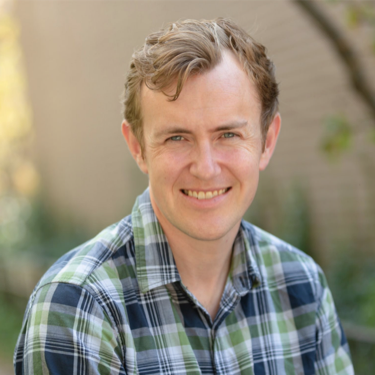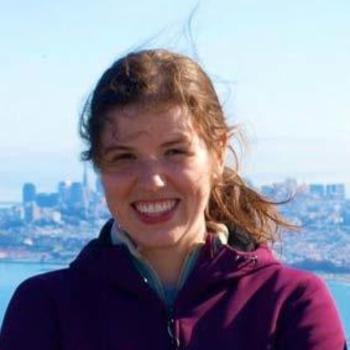| Topic: | Clouds and convection in diverse climates |
| Date: | July 11th – 22nd, 2022 |
| Application timeline: | Application opens on February 28th, 2022 |
| Application closes on April 22nd, 2022 | |
| Results will be announced by May 13th, 2022 | |
| Participants: | The application is open to graduate students and postdocs. International candidates are eligible to apply but please note that uncertainties may arise due to the pandemic. We require all participating individuals to be vaccinated and boosted (once eligible), unless they cannot do so because of a medical or religious reason or other authorized exemptions. |
| Description: | Rossbypalooza is a two-week long project-oriented summer school for people from a broad field of atmospheric, oceanic and planetary sciences. The goal is to provide a platform for interactions among students and faculty to understand the clouds and convection in climate of Earth and other planets, and to build connection between large-scale and convective-scale dynamists. The school will consist of lectures and projects where participants will work in groups to address a question of their choice, mentored by one of the faculty members. |
| Acknowledgement: | Rossbypalooza is funded by the University Corporation for Atmospheric Research (UCAR), National Science Fundation (NSF) and Department of the Geophysical Sciences, and Graduate Council at the University of Chicago. The computational resources are provided by the Research Computing Center (RCC) at UChicago. The organizers want to thank their generous support for making the event possible. |
Rossbypalooza is a student-led summer school at the University of Chicago. It is named after the Swedish meteorologist Carl Gustav Rossby and Lollapalooza, the annual music festival of Chicago. Carl Gustav Rossby was the head of the department of meteorology in the University of Chicago when he did his pioneering work on the Rossby waves of Earth’s atmosphere. In the spirit of celebrating climate science with fun, Rossbypalooza brings together people from different fields to understand the climate of Earth and other planets. Check out the past Rossbypalooza held in 2016 and 2018!
This year’s topic is “Clouds and convection in diverse climates”. Clouds and convection are key components and one of the major sources of uncertainty in the climate system. Given the strong coupling of clouds to dynamics, radiation, and microphysics, there is a great need for theoretical, observational, and modeling advancements. We will approach the problem of clouds and convection in the atmosphere, ocean, and on other planets from a diverse range of perspectives, including simple theory, observational constraint, and representation in climate models.
The summer school will consist of lecture series by faculty in the first week, introducing their experience of tackling problems related to cloud and convective processes on Earth and other (exo)planets. However, the focus of the program is a hackathon, where participants will work in groups throughout the two weeks to solve problems in consultation with the faculty members. At the end of program, participants will present their results and get feedbacks from the faculty.
This school is open to graduate students and postdocs working in atmospheric, oceanic, sea ice, glacier, and (exo)planetary sciences. Last time, we accepted 30 external students in total. People interested in climate research with applied math or physics background are also encouraged to apply. Please contact us at rossbypalooza@gmail.com for further details.
Click on a faculty member to see their research interests and Rossbypalooza contributions!

Yale UniversityFaculty and project mentorMy research interests are in planetary climates, with a focus on hydrologic cycles and the factors that control their behavior and evolution over time. I am especially interested in the atmosphere of Saturn's moon Titan, which closely resembles Earth's in many ways but at the same time is entirely alien: Titan hosts convective clouds of methane, stratospheric clouds of ethane and many other hydrocarbons and nitriles. More information on my research can be found here. |

University of WashingtonFaculty lecturerDargan studies simple models of climate, including tropical and extratropical dynamics, convection and clouds, and models of emissions to global temperature. |

University of ChicagoProject mentorMy research interests are in the large-scale circulation of the atmosphere, transport and mixing, diabatic sources of Rossby waves. |

University of ChicagoFaculty and project mentorProf. Shaw’s research focuses on the physics of the atmosphere and climate system past, present and future. She seeks to understand the underlying mechanisms controlling the response to climate changes so that we can have greater confidence in future projections. Her approach combines theory (primarily conservation laws), numerical modeling across a hierarchy of complexity and observational data analysis. |

University of ChicagoProject mentorMy research interests fall in two main threads. The first includes the use of the isotopic composition of atmospheric water vapor as a tracer of convective processes, cirrus formation, and stratosphere-troposphere exchange; and the design of spectroscopic techniques for in-situ trace gas measurements. The second includes climate (and human) response to greenhouse-gas forcing; development of tools for impacts assessment; statistical emulation of climate model output; and climate and energy policy evaluation. |

University of California, DavisFaculty and project mentorMy research interests are in the physics of rainstorms and atmospheric circulations in a changing climate. I am particularly interested in what environmental factors control the temporal and spatial scales of rainstorms, how will the characteristic scales of rainstorms change in a warmer climate, and how the collective effects of individual rainstorms, in turn, shape Earth's climate. |

California Institute of TechnologyKeynote speakerTapio studies atmospheric dynamics, both here on Earth and on other planets, on scales from clouds to the globe. His research aims to elucidate fundamental questions about climate such as: What controls the surface temperatures and winds? What shapes rainfall patterns? Where and when do clouds form in the atmosphere? He is currently leading the Climate Modeling Alliance, whose mission is to build the first Earth system model that automatically learns from diverse data sources to produce accurate climate predictions. |

University of ChicagoFaculty and project mentorMy research aims to improve our understanding of the dynamics of the oceans, the atmosphere, and the coupled climate system. I am particularly interested in the processes that govern the transport of heat and other constituents in the ocean. Understanding the mechanisms of these transport processes is key to our understanding of changes in the climate system during Earth’s past and future. I tackle these questions using a combination of theoretical fluid dynamics, numerical simulations and analysis of observational data. |

University of ChicagoProject mentorI am a planetary geoscientist who studies the evolution of rocky planets, with emphasis on Mars and rocky exoplanets. My research statement can be found here. |

University of MichiganFaculty and project mentorI’m interested in moist convection in planetary atmospheres. Moist convection refers to convection powered by latent heating or evaporative cooling from condensable species like H2O, NH3 or CH4. In Earth’s atmosphere, water vapor is lighter than the background air and in Jovian atmospheres, water vapor is heavier than hydrogen and helium. Sunlight reaches the bottom of the Earth’s atmosphere while it is dark in Jovian atmosphere below 1 bar pressure level. Precipitation reaches the ground on Earth but precipitation will evaporate away on Jupiter. Given all those differences, would moist convection be significantly different on Earth-like planets than on Jupiter-like planets? I’m trying to answer the following “big” questions. 1) Is moist convection the dominant way of heat transport on giant planets? 2) What is the mean profile of condensable species under radiative-convective equilibrium? 3) What is the role of moist convection in the evolution of planetary atmospheres? I combine data analysis with numerical modeling to answer these questions. The data come from the recent Juno microwave observation of Jupiter’s atmosphere and the model is written by myself. |

Stanford UniversityFaculty and project mentorI study organized deep convection and the feedbacks between severe storms and the climate. I’m interested in atmospheric dynamics and moist thermodynamics, with a particular focus on tropical cyclones (hurricanes) and supercell thunderstorms. I use theory and numerical modeling at a range of scales to better understand how these storms interact with the large-scale climate, and how they may change in a warmer world. Can small scale, highly nonlinear storm dynamics affect the energy budget of the planet? I focus on producing hypotheses and predictions that are falsifiable by observations with existing technology. |
Application opens on February 28th, 2022
Application closes on April 22nd, 2022
1. Curriculum Vitae: Please make it no more than 2 pages. Accepted formats: doc/docx/pdf.
2. Research statement: Please describe your research for scientists outside of your field within 300 words.
3. Statement of purpose: Please describe how you will benefit from Rossbypalooza within 200 words.
4. You will also be asked in the application form if you would like to work on a research idea of your own for the group project (not required). If you do, please also prepare a paragraph of idea description.
We require all participating individuals to be vaccinated and boosted (once eligible), unless they cannot do so because of a medical or religious reason or other authorized exemptions.
Click here to open the application!Rossbypalooza is free for all participants. This includes tuition, housing in Hyde Park, breakfast, and lunch. Funding for travel reimbursements is available for some applicants, especially for groups underrepresented in climate sciences (e.g., women, people of color, people with disabilities, and LGBTQ scientists/students). Please indicate your membership in any of these groups, as well as your desire for travel reimbursement, in the application form.
Rossbypalooza will be held on The University of Chicago campus in Chicago's historic Hyde Park neighborhood. Midway Airport is connected directly to Hyde Park by the #55 bus. For those flying into O'Hare, take the Blue line to downtown Chicago, and then transfer to the #2 / #6 bus, which go to Hyde Park. Uber and Lyft also serve the city of Chicago, between airports and the campus.
All students will be housed in single rooms or double rooms on The University of Chicago campus in Hyde Park. Rooms are fully furnished, and the details of the location and room amenities will be available soon. If you have any questions or special housing needs, please contact us directly at rossbypalooza@gmail.com.
Breakfast and lunch will be provided in the university cafeteria each weekday. Participants are responsible for their own dinner. Hyde Park has many wonderful restaurants, including Seoul Corea, the Nile, Yusho, Maravilla's, Snail Thai, Rajun Cajun, Noodles, Etc. and the one and only Medici's. For late-nighters, there's a 24-hour diner, Clarke's. (2022 updates: String Ramen, Shinju Sushi, Nando’s, and Salonica Restaurant are great.)
Rossbypalooza is dedicated to providing a harassment-free workshop experience for everyone, regardless of gender, gender identity and expression, sexual orientation, disability, physical appearance, body size, race, age or religion. We do not tolerate harassment of workshop participants in any form. Workshop participants violating these rules may be sanctioned or expelled from the workshop at the discretion of the workshop organizers. Read the full code of conduct here.
The full program schedule is available in the link here.
Video recordings are available to registered participants, and can be accessed from the link here.